Were you aware that 93% of online experiences start with a search engine? This statistic should grab your attention if you’re a small business owner. Why? Because it highlights the immense potential of having a well-crafted SEO strategy for small businesses.
In today’s digital world, a robust online presence is no longer optional; it’s necessary. But how do you stand out in a sea of competitors? The answer lies in a strong SEO strategy specifically tailored for small businesses.
This article will guide you through the essential components of an SEO strategy. It covers everything from keyword research to local SEO and provides tips on monitoring your efforts for success.
Table of Contents
ToggleUnderstanding SEO and Its Components
When discussing SEO, or Search Engine Optimization, we discuss techniques to improve your website’s visibility in search engine results. But SEO isn’t just a single tactic; it’s a combination of various components that work together to create a comprehensive strategy. These components include:
- Technical SEO: This involves the backend elements of your website, like site speed, mobile-friendliness, and site architecture.
- Content (On-Page SEO): High-quality, relevant content is the cornerstone of good SEO. It’s what attracts potential customers and keeps them engaged.
- Local SEO: For small businesses, local SEO is crucial. Appearing in local search results helps local customers find you easily.
- Digital Marketing (Off-Page SEO): Beyond SEO, your overall digital marketing strategy, including social media and content marketing, plays a role in your online success.
When Anfinit Technologies started helping small businesses with their SEO, we noticed many overlooked technical SEO. One client had a beautifully designed website but needed to realize that slow loading times drove potential customers away. After optimizing the technical aspects, they saw a 20% increase in website traffic within a month.
Why Small Businesses Need an SEO Strategy
Small businesses often operate on tighter budgets and resources than giant corporations. This makes the digital landscape both a challenge and an opportunity. Here’s why an SEO strategy for small businesses is not just beneficial but essential:
- Targeted Traffic: By targeting the right keywords, prospective customers actively looking for your services or products can be attracted.
- Brand Awareness: Appearing in search engine results boosts your visibility. The more people see you, the more they recognize and trust your brand.
- Local Exposure: With local SEO, you can target customers in your immediate area. This is crucial for small businesses that rely on local customers.
- Cost-Effectiveness: Compared to traditional advertising, SEO efforts are often more cost-effective and offer a better return on investment.
Keyword Research: The Foundation of Your SEO Strategy
Identifying the phrases and words potential customers use in search engines is important for any successful SEO strategy, especially for small businesses. Here’s how to conduct keyword research:
- Use SEO Tools: Google Keyword Planner, Google Search Console, and other SEO tools can help you find relevant keywords with high search volume.
- Analyze Competitors: Look at what keywords your competitors are ranking for. This can give you insights into gaps you can fill.
- Long-Tail Keywords: Certain phrases are less competitive but can attract highly targeted traffic. For example, “best organic bakery in Boston” is a long-tail keyword.
- Search Volume and Relevance: Choose keywords with a decent search volume and ensure they are highly relevant to your business.
Implementing Keywords in Content
Once you’ve conducted thorough keyword research, the next step is to place these keywords in your content strategically. This is crucial for both search engine ranking and providing value to your potential customers. Here’s how:
- Title Tags: Your primary keyword should appear in the title of your web page. This is one of the first things both Google and users see.
- Meta Descriptions: To improve your website’s search engine visibility, relevant keywords must be included in your meta descriptions.
- Body of Content: Use your keywords naturally throughout the article, blog posts, or product descriptions. It’s important to avoid using too many keywords in your SEO plan because it can be harmful. Also, write in simple language and avoid copying others’ work.
- Social Media: When sharing content on social media, include relevant keywords to boost visibility.
Anfinit Technologies once worked with a small business with great content but poor SEO. By simply optimizing their existing articles with the right keywords and meta descriptions, their organic traffic increased by 40% in just two months.
Local SEO and Its Importance
Local SEO is a crucial component of any SEO strategy for small businesses, especially those that rely on local customers. Here’s why it’s essential and how you can optimize for it:
- Google My Business: Setting up or optimizing your Google Business Profile is the first step in local SEO. This aids in improving your visibility on local search results and Google Maps.
- Local Keywords: Use location-specific keywords in your content, meta descriptions, and titles to rank higher in local search results.
- Customer Reviews: To boost your online presence, it’s a good idea to ask happy customers to leave reviews on your company’s Google My Business page. Positive reviews improve your visibility in local search results.
- Local Listings: Ensure your business information is consistent across all local directories to improve your search engine ranking.
This study by Brightlocal shows that 98% of people read online reviews of local businesses before purchasing from them.
Monitoring Your SEO Efforts
You’ve done the research, optimized your content, and focused on local SEO. But how do you know if your efforts are paying off? Monitoring is key. Here’s how to do it:
- Google Analytics: This tool offers a vast amount of valuable data.on website traffic, user behavior, and more. It’s essential for tracking the success of your SEO strategy.
- Google Search Console: This invaluable tool helps you understand how Google views your site. It can provide insights into search queries that lead people to your website.
- Performance Metrics: Keep an eye on your key performance indicators (KPIs) like click-through rates, bounce rates, and conversion rates to measure the effectiveness of your SEO efforts.
- Adjust and Adapt: SEO is not a set-it-and-forget-it strategy. Based on your monitoring, be prepared to adjust your keyword strategy and content.
Adjusting Your Keyword Strategy
SEO is a dynamic field. What works today may be less effective tomorrow. That’s why reviewing and adjusting your keyword strategy regularly is essential. Here are some tips:
- Review Performance: Use tools like Google Analytics and Google Search Console to review the performance of your keywords.
- Seasonal Trends: Utilize Google Trends to understand seasonal fluctuations in keyword search volume.
- Competitor Analysis: Keep an eye on what keywords your competitors are ranking for and consider adjusting your strategy accordingly.
- Content Updates: If specific keywords are underperforming, consider updating the content around them or replacing them altogether.
Additional Tips for a Robust SEO Strategy
Before we wrap up, here are some additional tips to enhance your SEO efforts:
- Featured Snippets: Aim to answer common questions in your content to appear in Google’s featured snippets. This can be an excellent opportunity to get in front of people, as Google recently said featured snippets don’t have to come from the top 10 results for a search.
- Social Media: Don’t underestimate the power of social media in SEO. Shareable content can significantly boost your online presence.
- SEO Agency: If SEO seems overwhelming, consider hiring an SEO agency like Anfinit Technologies specializing in small business SEO.
Conclusion
Keywords play a crucial role in SEO. Implementing a comprehensive SEO strategy for small businesses is not just a good idea; it’s necessary in today’s digital age. Each element is important in your online success, from keyword research and content optimization to local SEO and performance monitoring.
And remember, Anfinit Technologies is here to help you every step of the way. So why wait? Start optimizing today for a more prosperous tomorrow.
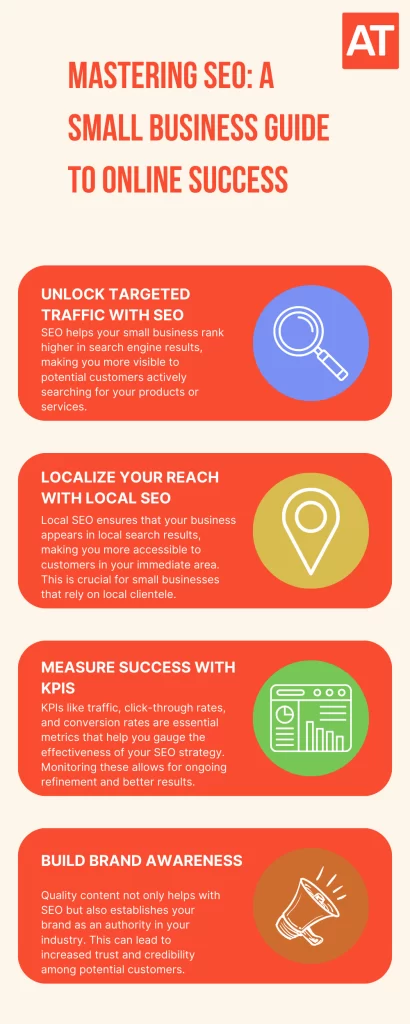

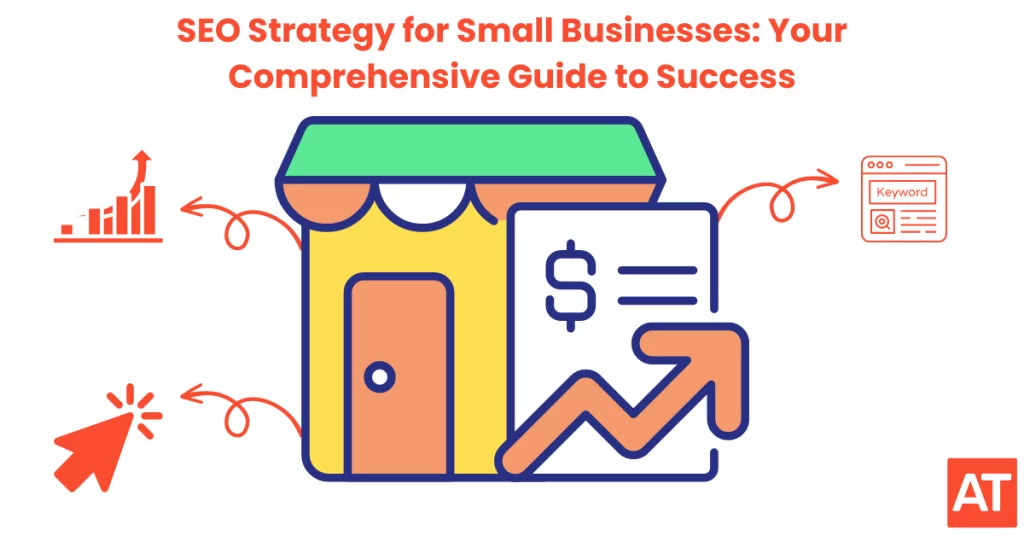

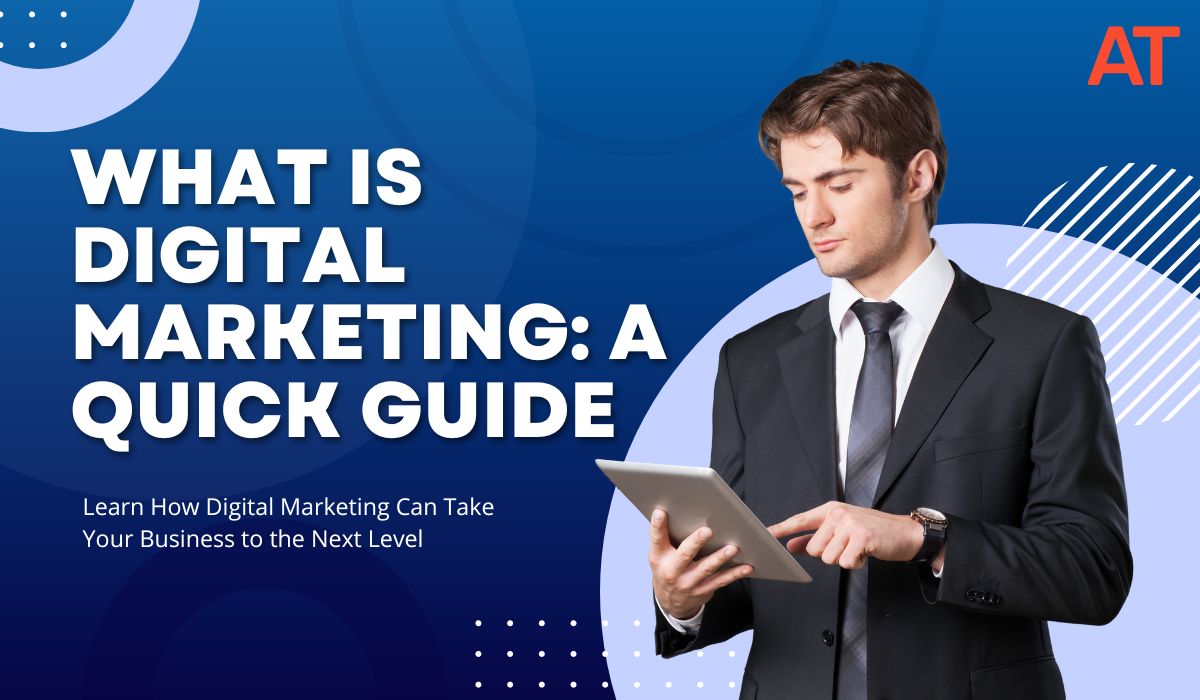
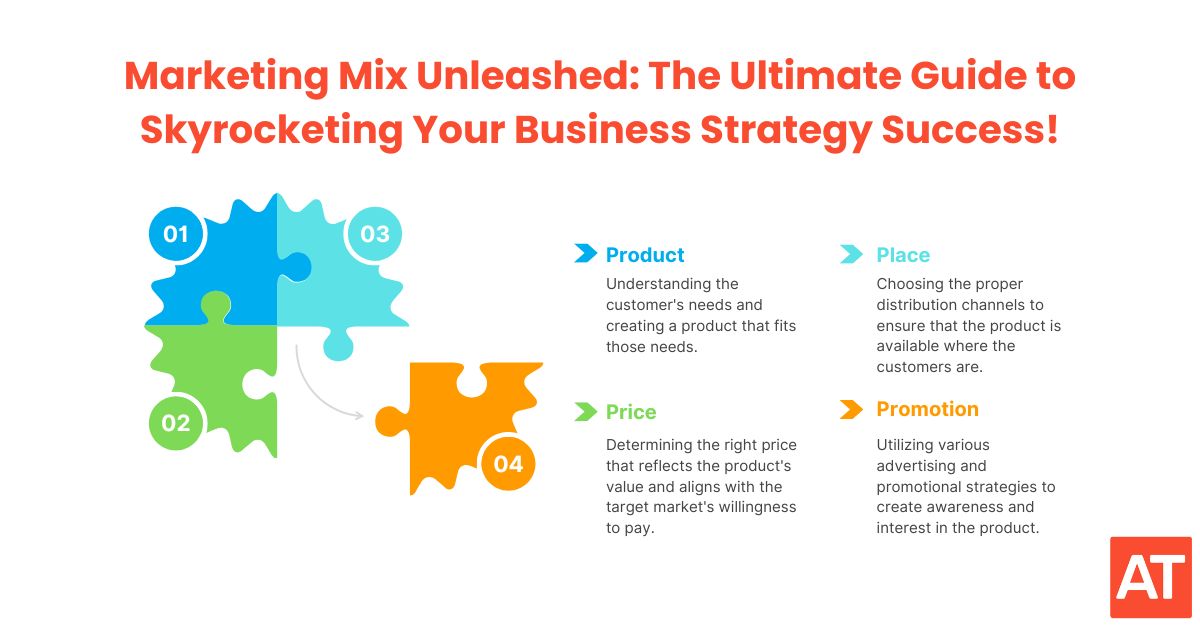
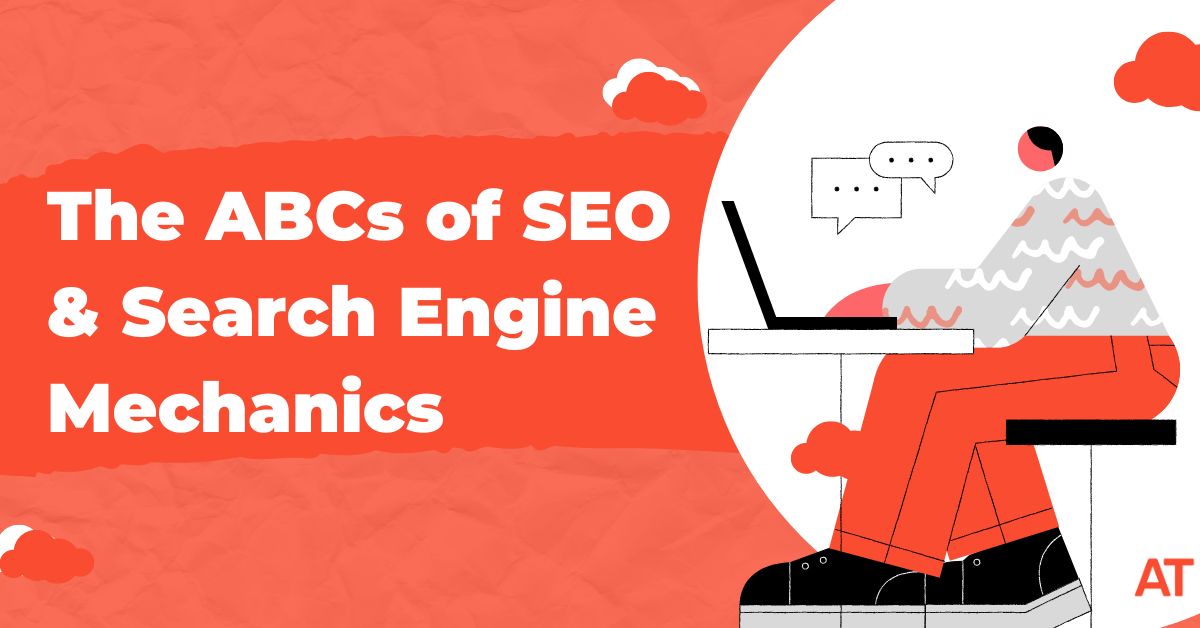
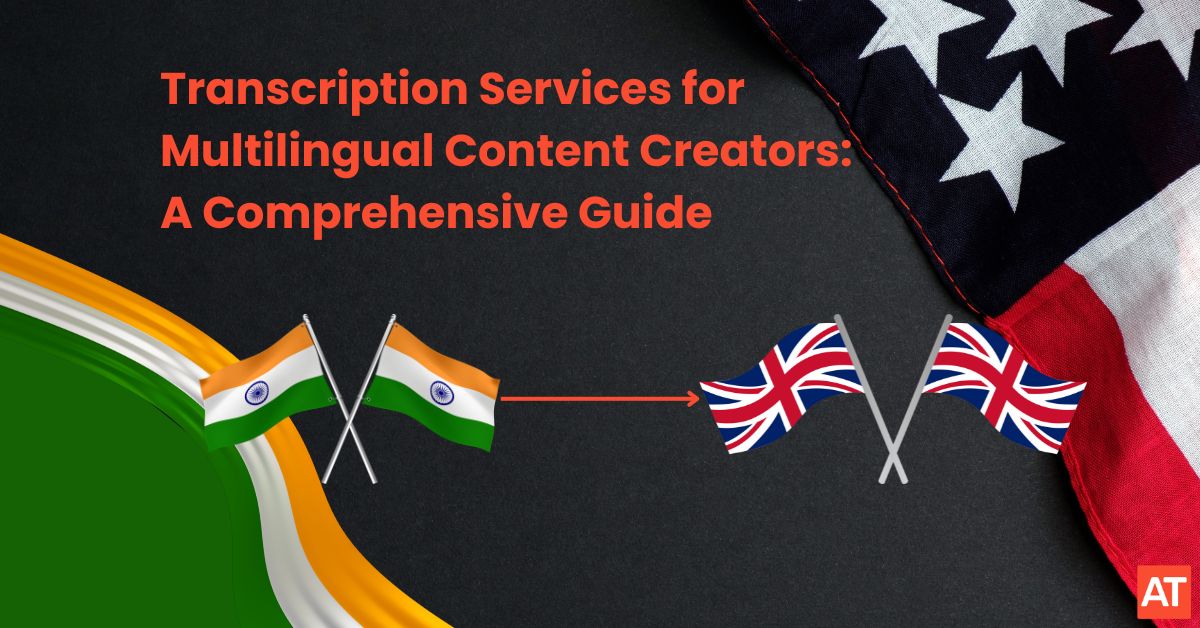

This Post Has One Comment
Pingback: How to Choose the Best SEO Company for Your Business - Anfinit Technologies